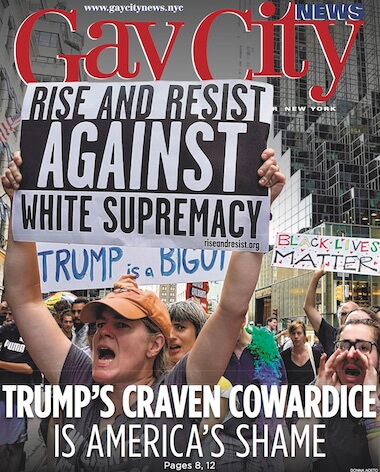BY KELLY COGSWELL | Just this week, the makers of the film “Suffragettes” were slammed as colonialists and racists for daring to compare the condition of women with that of slaves, not just by using Emmeline Pankhurst’s phrase “I’d rather be a rebel than a slave” in the script, but also plastering it on promotional T-shirts that cast members like Meryl Streep had the gall to wear.
Like these critics, I was extremely uncomfortable with the group photo. To my American eyes, all those white faces grinning over the slogan somehow made slavery seem like a choice for those stupid blacks, rather than a condition they were forced into. Using this in promotional materials in 2015 when the horrors of the “peculiar institution” are increasingly revised and downplayed, wasn’t the greatest choice.
This summer, though, I was at an academic event where white French philosopher Monique Wittig was likewise condemned as racist and colonialist for apparently comparing slavery and the subjugation of women. Since then I’ve been wondering if the knee-jerk condemnation of this comparison is due to an expectation that racism is endemic among white feminists or if it is also related to just what we think slaves were or are.
A Dyke Abroad
For instance, I saw the TV miniseries “Roots” as a kid, so for years I’d hear the word slave and think of a muscly LeVar Burton in chains and standing on the auction block. Gradually, I learned to identify slavery’s legacy in the shooting of unarmed black men and, most recently, in Chicago’s housing policies for the black community. This has deepened my understanding of slavery, but only its US version.
But at its most basic, what is a slave but a nonperson who cannot own property but is, in fact, property? And like a shovel or a horse, a slave is not paid for her work, has no control over her body, the pleasure she provides, or the offspring she bears. Rather, a slave, like any other possession, is subject to the will of the master. She can be discarded, mutilated, or killed without consequence, having no legal standing in her own right, but only in relation to her owner. And it is often his violence or threat of it that keeps her in her place.
Using those definitions, Wittig would have been perfectly correct to acknowledge points of comparison, especially coming from France, where most women didn’t sit around in cafés smoking cigarettes with Sartre. Women could not vote in France until 1945. They weren’t even given legal majority status –– allowing them to act on their own behalf in matters of law –– until 1938. They didn’t have the right to have their own bank account without a husband’s authorization until 1965. And only won the right to abortion in 1975. Domestic violence remains a huge problem.
My own grandmother grew up in rural Kentucky, had four kids, and told me how incredibly relieved she was when a kind doctor tied her tubes. The women around her were just baby-making machines. They churned out one each year until they died and were replaced by a younger version. Violence was common. And as much as my mother hated my father, she told everyone gratefully, “At least he didn’t beat me.”
Like race-based slavery, the free labor of women (of all races) is essential to national and local economies, to household and agricultural work, and to childcare. Most importantly, in terms of comparison, it is still often justified as a kind of divine right, the man acting as caretaker of an inherently inferior being, who is spiritually and morally deficient, not to mention less intelligent than a good horse. Besides, God said it’s okay.
And as with race-based slavery, the legacy of women as property continues to pervade every aspect of our lives, not just in social, political, and economic inequalities, but in the continual, daily, persistent subjugation of our female flesh from petty harassment on the street, to rape, intimate partner violence, even murder. Women get killed all the time, especially when they try to leave their abusers to be free. The largest difference –– our deaths are so common, nobody bothers to hold a demo or take to the street.
Without being identical, the similarities are there if you look for them. Maybe we don’t want to. We’ve already forgotten or never knew just how bad women had it. And how far we still have to go. I only learned a couple of years ago that in the US women couldn’t get credit cards in their own names until 1974 –– when I was in the third grade. It was about that time that individual states began to recognize marital rape, though it didn’t become criminalized across the country until 1993, and even now is rarely prosecuted successfully because, well, the vestiges of woman as property remain.
As we increasingly reconsider the legacy of slavery, it’s worth remembering that early US suffragettes were often abolitionists as well, finding in the other reform movement both allies and common ground.
Kelly Cogswell is the author of “Eating Fire: My Life as a Lesbian Avenger,” from the University of Minnesota Press.


































